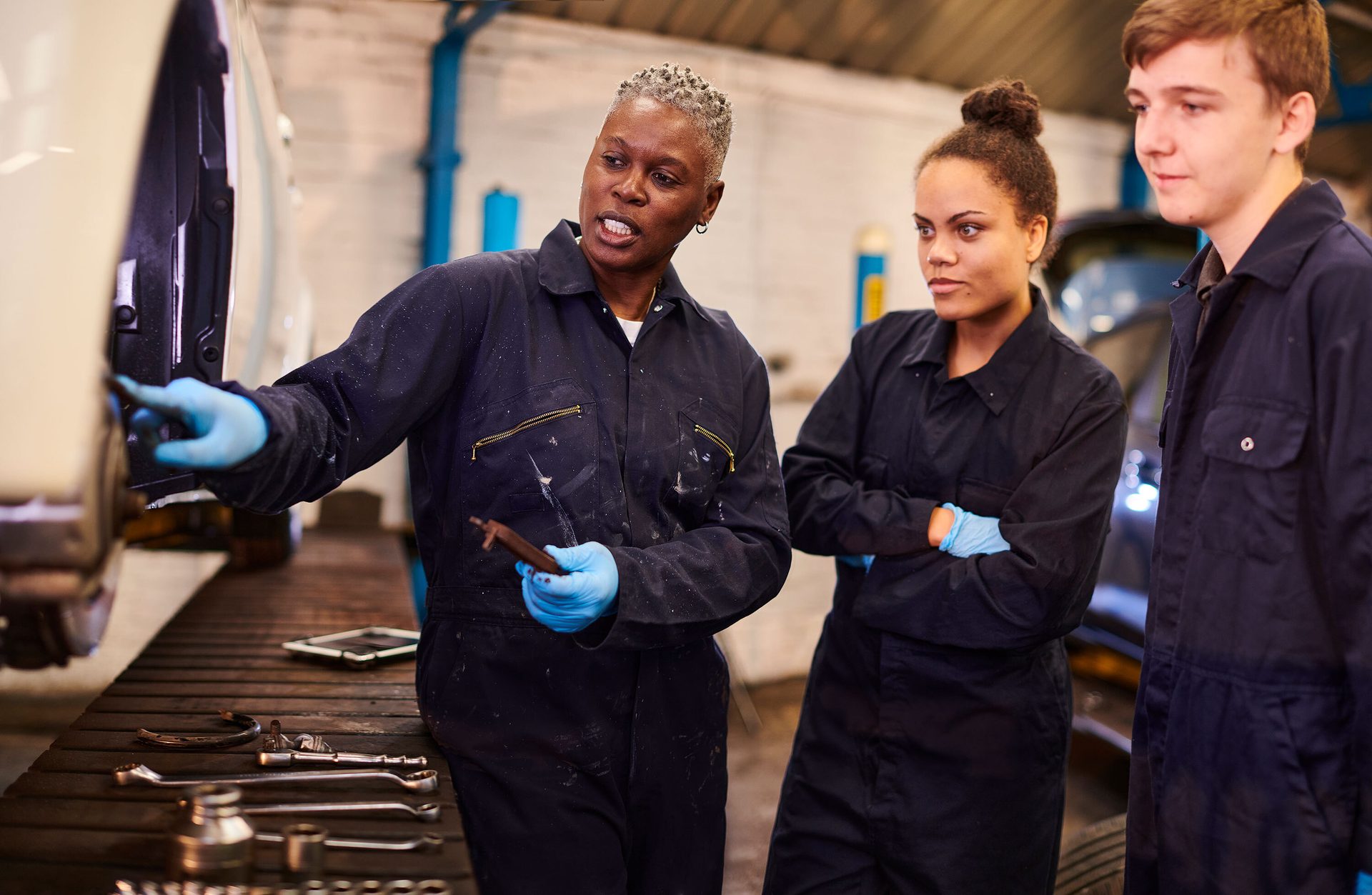EDITORIAL OPINION
BY KRISTEN BAYLES

Prepping the next generation
The next generation is inheriting the skilled trades industry at an interesting time. How can you prepare them?

Gen-Z is inheriting the trades at a difficult time. Image courtesy of sturti / E+ / Getty Images
Growing up, I was always told the same thing in school: you have to go to college. Even in a small-town in the country, where trade work is often passed down from one family member to another, the importance of higher education was instilled in us for years. College came to symbolize success and upward mobility. Guidance counselors, parents and even the media often reinforced the idea that college was the “best” path. Trades, while essential, were definitely portrayed as a fallback or second-tier option.
People who really didn’t know what they wanted to do were still encouraged to go to college. I even saw the effects of this firsthand. During orientation, when everyone was going around introducing themselves and talking about why they came to college, I lost count of the amount of people who said, “I’m not really sure what I want to do.” People were taking out massive loans without any real idea what they would do with the degree that came from it.
I really don’t blame those people – like I said, my age group was told that college was our only option for a successful future. When you’re told that there’s only one path to success, you follow it.
Thankfully, I can see growing recognition for the value of skilled trades, especially amid the current labor shortage. Educators and policymakers alike are encouraging people to enter the trades (earlier this month, I wrote about a new executive order aimed at promoting skilled trades and apprenticeships); but, the “college is the only option” thinking that has permeated for years has had a lasting effect on the industry. There are industry professionals that are ready to retire, but the upcoming workforce hasn’t had the same training that previous generations have had access to.
So, how can we prepare the upcoming workforce for the job?
One way is to offer internships and ride-alongs. That first-hand experience is vital to capturing the attention of the next generation. Ride-along days are a great way to give more personal attention to anyone who might be interested in the trades, but without the full commitment of an internship. I would recommend seeing if you can partner with a local school; high school job fairs are a fantastic way to attract students who are eager to learn, and cultivate that desire.
I can see growing recognition for the value of skilled trades, especially amid the current labor shortage. Educators and policymakers alike are encouraging people to enter the trades.
Allow your young workers time to learn. Mistakes will happen; turn them into learning opportunities. Do your best to create an environment where questions are encouraged! We all start somewhere, after all. And, most importantly, recognize growth when you see it. Gen-Z workers seem to thrive off of praise, so don’t be shy with it!
Mentorships are also a must. Pairing newcomers with someone more experienced not only encourages positive relationships between employees, but also gives them someone to turn to with any questions about what to expect from the job from someone who does it every day. Regular check-ins can also be helpful; make sure no one is suffering in silence! Create an environment where no one is afraid to ask questions.
Overall, remember this: Gen-Z is inheriting the trades at a difficult time. Uncertainty and shortages of all kinds are all that they know right now. But, there’s a high demand for trade workers today. Be patient and proactive, and you can help prepare the next generation of trades workers to be the best one yet.
Kristen Bayles is the Associate Editor for Plumbing & Mechanical and Supply House Times. Originally from Monroeville, Alabama, her family worked in the plumbing industry for many years. Kristen holds a Bachelor’s degree in English with a specialization in Language and Writing from the University of Montevallo. Prior to joining BNP in 2025, she worked as an editor in the jewelry industry.
